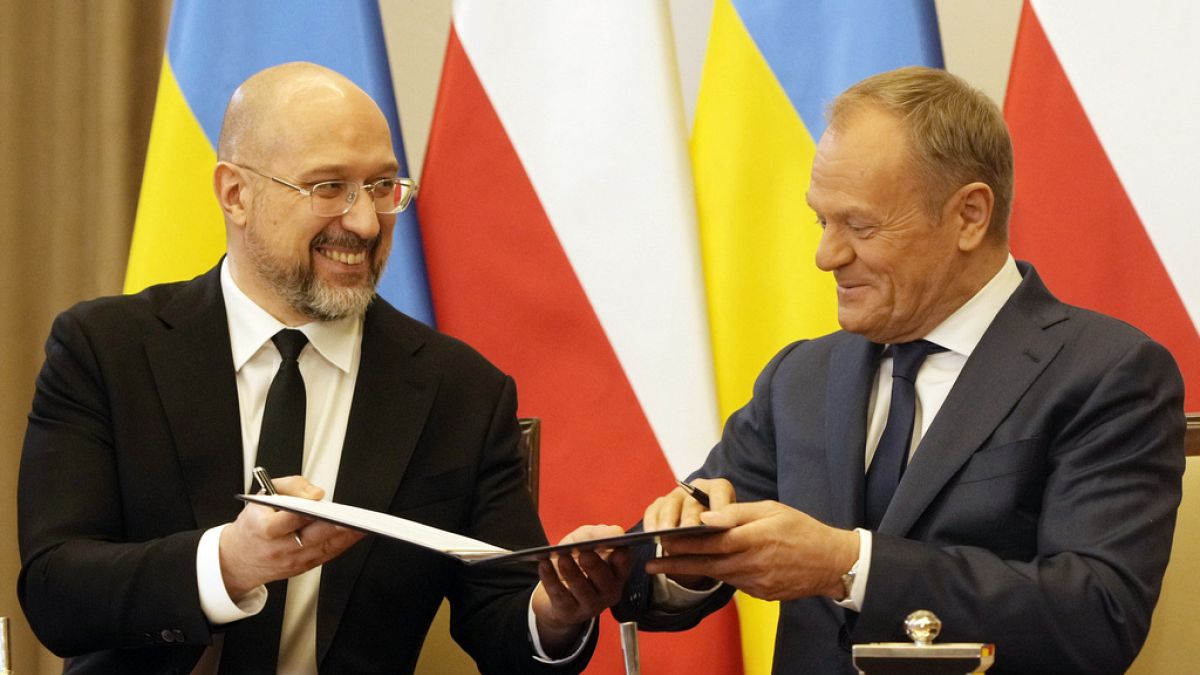The leaders said proposals were made on restricting Ukrainian food imports that farmers argue is undermining their livelihoods, but that more progress was necessary.
The prime ministers of Ukraine and Poland said they made progress on Thursday toward meeting demands of Polish and western European farmers who want restrictions on cheap Ukrainian food imports that they say undermine their livelihoods, but they announced no breakthrough.
Ukraine’s Prime Minister Denys Shmyhal was in Poland for talks with his counterpart, Donald Tusk, to find ways of addressing the farmers’ discontent that has led to violent protests and blockades of Poland’s border crossings with Ukraine.
The leaders said some proposals were made during the talks but that more work was needed. Both said it would be helpful if the European Union went forward with a proposed 50% tax on Russian and Belarusian food imports.
“We are looking for solutions that would be good for both sides,” Tusk said.
“On the issue of farming, we have taken a step forward,” he said, pointing to Poland's efforts to have the EU restrict imports of Russian and Belarusian foods and thus take the pressure off the EU food market and also help Ukraine produce.
“It seems we are just one step away” from that joint goal, Tusk said.
Shmyhal said that through the talks they were “definitely making progress toward lifting the (border) blockades, but most importantly, toward solving all the critical issues that lead to such blockades.”
They signed a joint declaration that said trade liberalization measures should benefit the economies of Poland, other EU members and Ukraine “without destabilizing their markets,” and that trade measures should take into account "the changing security situation in Ukraine.”
Farmers in many European countries have been staging vehement protests targeting, among other issues, the cheap imports from Ukraine, and tensions have grown between Kyiv and its staunch ally Warsaw over the tax-free inflow of Ukraine's farm produce.
Tusk had suggested that Poland, a NATO member and an EU country bordering Ukraine, would seek quotas on the imports during the talks. He has also suggested boosting Ukrainian exports to needy countries outside Europe.
Shmyhal said that Ukraine has agreed to “certain limitations” but did not specify them.
The EU has opened its doors wide to Ukrainian farm produce to help the country make money from its exports after Russia’s 2022 invasion cut many of its traditional trade routes.
However, EU lawmakers recently agreed that quotas could be reintroduced on some Ukrainian foods to address the European farmers’ complaints.
